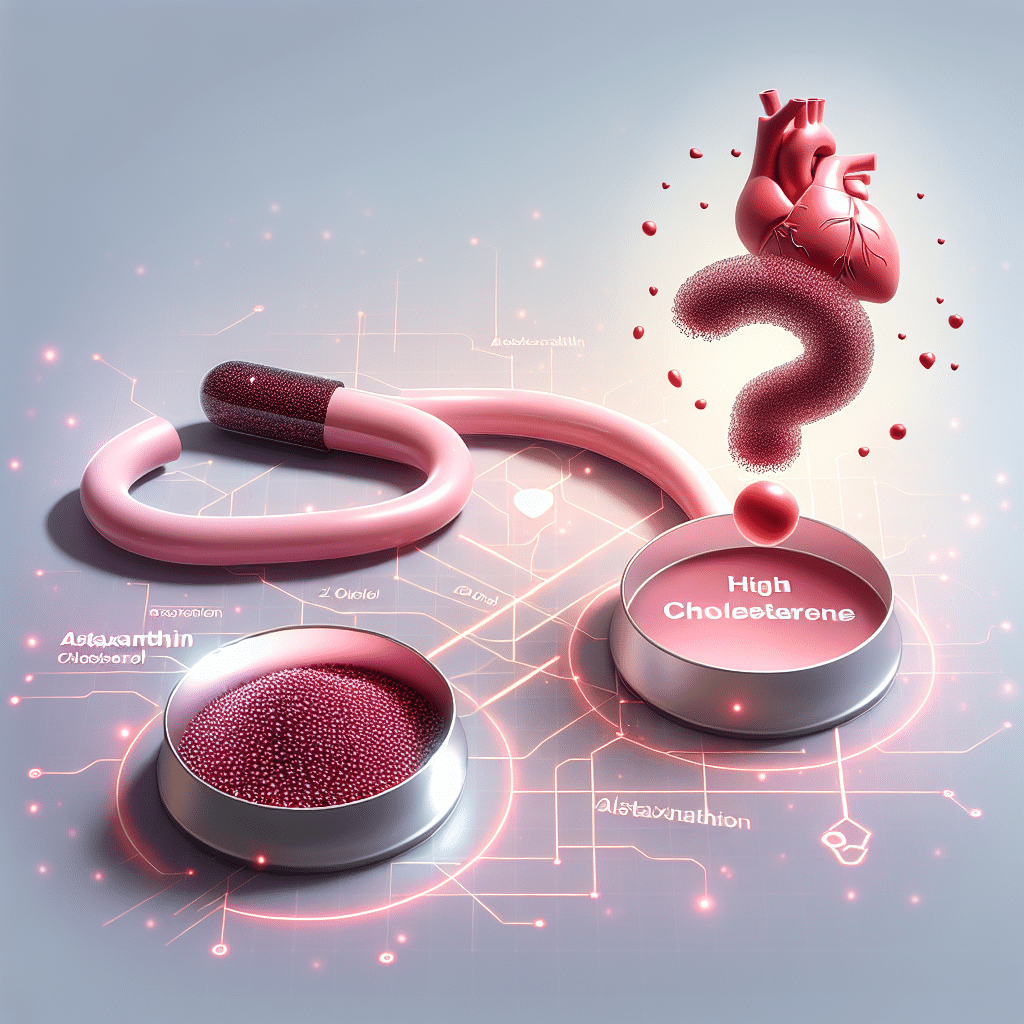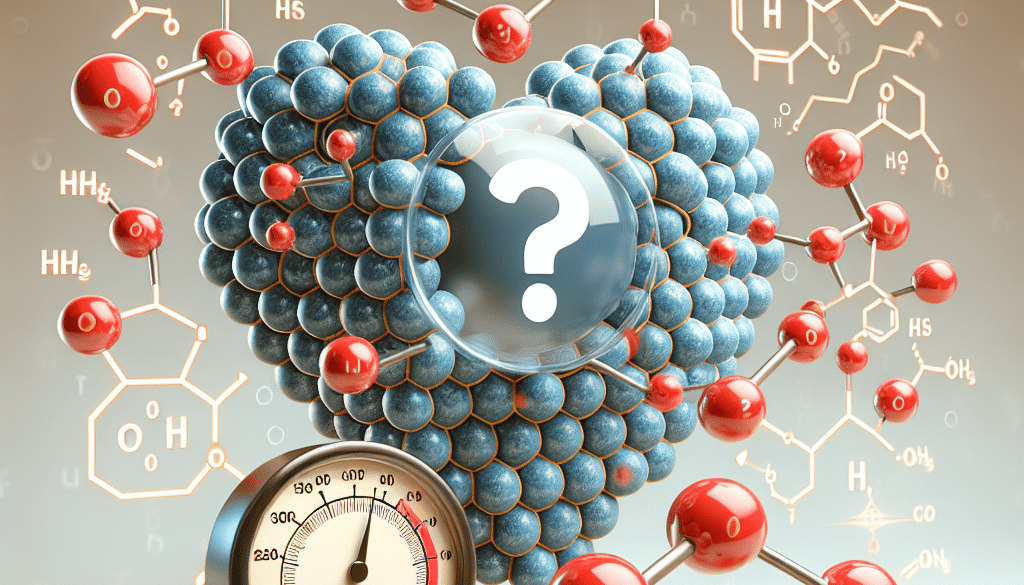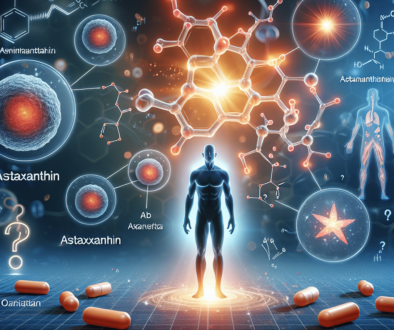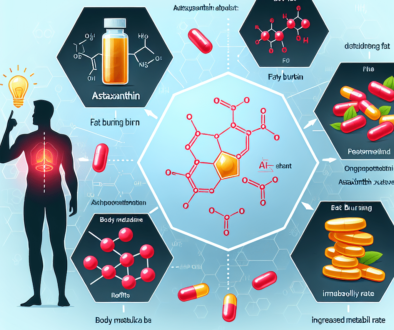Can Astaxanthin Cause High Cholesterol?
-
Table of Contents
- Astaxanthin and Cholesterol Levels: Uncovering the Truth
- Understanding Astaxanthin
- The Link Between Astaxanthin and Cholesterol
- Examining the Evidence: Studies on Astaxanthin and Cholesterol
- Potential Mechanisms of Action
- Considerations and Precautions
- Conclusion: Astaxanthin’s Role in Cholesterol Management
- Enhance Your Health with ETprotein’s Premium Protein Products
Astaxanthin and Cholesterol Levels: Uncovering the Truth

As health-conscious individuals seek out natural supplements to bolster their well-being, astaxanthin has emerged as a popular choice due to its potent antioxidant properties. However, with the rise in popularity comes the scrutiny of its effects on various aspects of health, including cholesterol levels. This article delves into the question: Can astaxanthin cause high cholesterol?
Understanding Astaxanthin
Astaxanthin is a carotenoid pigment found in certain algae, yeast, salmon, trout, krill, shrimp, and other seafood. It is responsible for the pinkish-red hue in many marine organisms. As a powerful antioxidant, astaxanthin is known for its ability to neutralize free radicals and protect cells from oxidative damage.
The Link Between Astaxanthin and Cholesterol
Cholesterol is a type of lipid that is essential for the body’s normal functioning. It is a building block for cell membranes and hormones. However, high levels of cholesterol, particularly low-density lipoprotein (LDL) cholesterol, are associated with an increased risk of cardiovascular disease.
Research on astaxanthin’s impact on cholesterol levels has yielded mixed results. Some studies suggest that astaxanthin may help reduce LDL cholesterol and increase high-density lipoprotein (HDL) cholesterol, which is considered “good” cholesterol. Other research has found no significant effect on cholesterol levels.
Examining the Evidence: Studies on Astaxanthin and Cholesterol
-
Positive Effects on Cholesterol: A study published in the “Journal of the American College of Nutrition” found that astaxanthin supplementation reduced triglycerides and increased HDL cholesterol in participants. Another study in “Atherosclerosis” reported that astaxanthin helped reduce the oxidation of LDL cholesterol, which is a key factor in the development of atherosclerosis.
-
Neutral Effects on Cholesterol: Conversely, a study in “Marine Drugs” concluded that astaxanthin did not significantly affect cholesterol levels in healthy individuals. This suggests that the impact of astaxanthin on cholesterol may vary depending on an individual’s health status and existing cholesterol levels.
Potential Mechanisms of Action
While the exact mechanisms by which astaxanthin might influence cholesterol levels are not fully understood, several theories have been proposed:
-
Antioxidant Activity: Astaxanthin’s antioxidant properties may prevent the oxidation of LDL cholesterol, which is a precursor to plaque formation in arteries.
-
Anti-inflammatory Effects: Astaxanthin may reduce inflammation, which is closely linked to heart disease and may indirectly affect cholesterol metabolism.
-
Gene Expression: Some research suggests that astaxanthin could influence genes involved in lipid metabolism, potentially affecting cholesterol levels.
Considerations and Precautions
Before adding astaxanthin to your supplement regimen, it is important to consider the following:
-
Consultation with a Healthcare Provider: Always consult with a healthcare professional before starting any new supplement, especially if you have pre-existing health conditions or are taking medications.
-
Purity and Source: The quality of astaxanthin supplements can vary. Choose products from reputable manufacturers that provide information about the source and purity of their astaxanthin.
-
Dosage: The appropriate dosage of astaxanthin can vary. Most studies have used doses ranging from 4 to 12 mg per day.
Conclusion: Astaxanthin’s Role in Cholesterol Management
In conclusion, the current body of research does not provide conclusive evidence that astaxanthin causes high cholesterol. On the contrary, some studies suggest that it may have a beneficial effect on cholesterol levels by reducing LDL cholesterol and increasing HDL cholesterol. However, more research is needed to fully understand the relationship between astaxanthin and cholesterol, as well as the optimal dosage and long-term effects of supplementation.
The key takeaways from this article are that astaxanthin is a potent antioxidant with potential benefits for heart health, but its impact on cholesterol levels is not yet fully understood. Individuals interested in taking astaxanthin should do so under the guidance of a healthcare provider and choose high-quality supplements from reputable sources.
Enhance Your Health with ETprotein’s Premium Protein Products
If you’re looking to complement your health regimen with high-quality protein sources, consider ETprotein’s range of organic bulk vegan proteins and L-(+)-Ergothioneine (EGT). Their products are characterized by a neutral taste, non-GMO, allergen-free attributes, and high purity levels, making them an excellent choice for those seeking to support their overall health and wellness.
ETprotein’s offerings cater to a diverse range of industries, including nutraceuticals, pharmaceuticals, cosmeceuticals, and food and beverage. Whether you’re a distributor, trader, or manufacturer, ETprotein can provide comprehensive protein solutions to meet your needs.
For more information or to sample their products, please contact ETprotein and email sales(at)ETprotein.com today.
About ETprotein:
ETprotein, a reputable protein and L-(+)-Ergothioneine (EGT) Chinese factory manufacturer and supplier, is renowned for producing, stocking, exporting, and delivering the highest quality organic bulk vegan proteins and L-(+)-Ergothioneine. They include Organic rice protein, clear rice protein, pea protein, clear pea protein, watermelon seed protein, pumpkin seed protein, sunflower seed protein, mung bean protein, peanut protein, and L-(+)-Ergothioneine EGT Pharmaceutical grade, L-(+)-Ergothioneine EGT food grade, L-(+)-Ergothioneine EGT cosmetic grade, L-(+)-Ergothioneine EGT reference grade and L-(+)-Ergothioneine EGT standard. Their offerings, characterized by a neutral taste, non-GMO, allergen-free attributes, with L-(+)-Ergothioneine purity over 98%, 99%, cater to a diverse range of industries. They serve nutraceutical, pharmaceutical, cosmeceutical, veterinary, as well as food and beverage finished product distributors, traders, and manufacturers across Europe, USA, Canada, Australia, Thailand, Japan, Korea, Brazil, and Chile, among others.
ETprotein specialization includes exporting and delivering tailor-made protein powder and finished nutritional supplements. Their extensive product range covers sectors like Food and Beverage, Sports Nutrition, Weight Management, Dietary Supplements, Health and Wellness Products, and Infant Formula, ensuring comprehensive solutions to meet all your protein needs.
As a trusted company by leading global food and beverage brands and Fortune 500 companies, ETprotein reinforces China’s reputation in the global arena. For more information or to sample their products, please contact them and email sales(at)ETprotein.com today.













